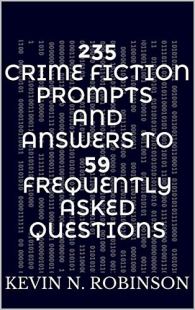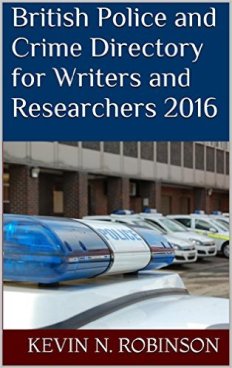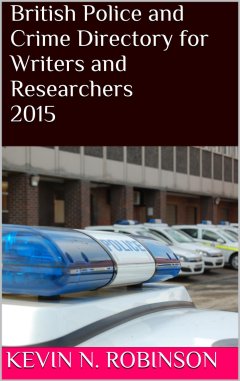Are you seeking crime writing inspiration, looking for your investigative muse or your policing Mo Jo?
Are you seeking crime writing inspiration, looking for your investigative muse or your policing Mo Jo?
- Have you ever come up with a story-line only to wonder if it would work the way you would expect it to?
- Not sure how the police really work?
- Ever wondered if your killer really can get away scot-free?
- Want to know how a real police investigation works?
- Having problems with your police procedures?
If you are, look no further. Help is at hand. With 30 years police experience I can tell you how it really is and just where you can get your plot, twists and turns along with creative ideas to get your novel going or restarted.
Inspiration, ideas, knowledge, guidance and support are what I can offer you so send me your questions, your problems and let’s see what you and I can do.
Follow this blog to get regular posts offering ideas and inspiration by clicking the “Follow” but above and to the left.
Still not sure, just have a look at a few of the posts on the left to see the sort of ideas and advice I can offer.
BREAKING NEWS – 3rd May 2020
235 Crime Fiction Prompts and Answers to 59 Frequently Asked Questions
This book is based around 59 of the most frequent questions I have been asked about the British police by novice and seasoned writers alike. It has also led to 235 prompts to help develop your story, take it in different directions or to simply stir your creative juices.
You will find accurate and up to date information about crime and policing, along with 45 hyperlinks to help you research some of the answers more deeply or to find TV programs that may help immerse yourself in the real world of policing in the UK.
This book is split into five parts, each focussing on a different aspect of policing.
- Section A concentrates on police officers
- Section B explores general police incidents
- Section C examines criminal investigations
- Section D focuses on crime scenes and
- Section E provides some general advice for writers.
You don’t need to read from the first page to the last, just dip in – dip out as and when you feel the need.
So why not treat yourself to 235 Crime Fiction Prompts and Answers to 59 Frequently Asked Questions
Please feel free to pass this information onto any of your friends or anyone else you think may be interested to hear about the availability of the book.
You can also get your hands on A Writer’s Guide to Police Cells and Custody Procedures in the UK. In ![A Writer's Guide to Police Cells and Custody Procedures in the UK by [Robinson, Kevin N.]](https://images-eu.ssl-images-amazon.com/images/I/51Ujabif1LL.jpg) this book you will find out what happens when a person ends up in police cells.
this book you will find out what happens when a person ends up in police cells.
You’ll learn what the cell area looks like, who can be found in it and what their role is.
Did you know that you could find around 19 different types of person in a custody area, as well as the prisoners themselves?
You’ll also be taken along the same journey as a suspect, from the point of their arrest to their release from custody.
You’ll discover plenty of ideas in the book for you to consider when trying to add conflict, twists and turns to your story and for taking it forward with realism.
You will also be able to take advantage of 32 hyper-links to other resources freely available via the internet.
Currently available from Amazon is A Writer’s Guide to Senior Police Investigators in the UK. ![A Writer's Guide to Senior Investigating Police Officers in the UK by [Robinson, Kevin N.]](https://images-eu.ssl-images-amazon.com/images/I/511P4PJVr8L.jpg) This book is perfect for those writers wanting to make their lead detectives or Senior Investigating Officers (SIOs) credible.
This book is perfect for those writers wanting to make their lead detectives or Senior Investigating Officers (SIOs) credible.
Inside you will find details of what exactly a lead investigator and Senior Investigating Officer is, how they become one, what training they undertake and what 38 qualities and expectations they are expected to exhibit.
You will also find 27 specific ideas of how to take your stories forward and/or create conflict in them.
There are also hyperlinks to 79 websites or documents that you may find useful in building up your understanding of what a Senior Investigating Officer needs to know and apply during a major investigation. All of this invaluable information can’t help but allow you to create a convincing, believable story.
If you are one of those authors that want to have a close relationship with a police officer who has years of experience of policing in the UK that they can call upon to answer accurately and reliably, their troubling questions about the police, their policies and procedures, A Writer’s Guide to Senior Police Investigators in the UK will prove indispensable to you and enable you to bring authenticity and realism to the lead detective and senior investigators in your stories.
 Don’t forget you can still obtain your very own copy of the British Police and Crime Directory for Writers and Researchers 2016. Not only have the links in the 2015 edition been checked and verified but over 70 pages of extra links have been added. This now means that you have immediate access to contact details of the 72 police and other law enforcement agencies and departments; more than 350 manuals, documents and guides about the police, investigating crime and criminals; 85 websites that provide you with other exciting and useful information; 69 video clips to increase your understanding and knowledge about the police at work; 42 social media links that will keep you updated and informed, along with links to 85 books about the police, policing, crime and writing crime fiction that you will find invaluable.
Don’t forget you can still obtain your very own copy of the British Police and Crime Directory for Writers and Researchers 2016. Not only have the links in the 2015 edition been checked and verified but over 70 pages of extra links have been added. This now means that you have immediate access to contact details of the 72 police and other law enforcement agencies and departments; more than 350 manuals, documents and guides about the police, investigating crime and criminals; 85 websites that provide you with other exciting and useful information; 69 video clips to increase your understanding and knowledge about the police at work; 42 social media links that will keep you updated and informed, along with links to 85 books about the police, policing, crime and writing crime fiction that you will find invaluable.
Go down the traditional publishing route and you will find an editor telling you to get your policing facts checked out: go down the self publishing route and its down to your own self-discipline and professionalism.
You will find that most bestselling authors have conducted meticulous research or employed someone to do it for them.
Using this book, you will no longer find it difficult or time-consuming to locate the facts about the police in the UK, that you need for your novel.
You don’t need to spend time and effort tracking down a reliable source of information. You can free yourself from futile research.
You can save time wasted looking for facts you can trust and focus on what you do best – writing.
Treat yourself to the latest edition of the British Police and Crime Directory for Writers and Researchers and turn yourself from a nervous, unsure novice to a confident, knowledgeable, professional author.
218 Facts a Writer Needs to Know About the Police is now available on Amazon.  So to get your very own copy click the title above or the picture of the cover to the right.
So to get your very own copy click the title above or the picture of the cover to the right.
The book contains 40 story ideas based on 218 facts in 36 different areas of policing, which will both educate and stimulate your creative inclinations.
Topics covered include but are not limited to:
- the organisation of the police
- crime scene attendance, assessment and investigation
- police intelligence work
- police interviews
- custody suite issues
- the role of the Senior Investigating Officer
If you don’t want to make mistakes with your fiction but you don’t have a police adviser in your pocket or hanging at the end of a telephone call just dying to answer the question that you feel really stupid for having to ask, buy this book. I’ve put it together to save you the time you’d have to spend conducting the research (even if you knew where to look in the first place) or having to flatter, coerce or bribe a police officer who has sufficient experience to provide you with accurate and up to date information along with a series of ideas for taking your story forward.
Use 218 Facts a Writer Needs to Know About the Police to make your stories realistic, to provide you with ideas you’d never thought of before and best of all, to prevent you from embarrassing yourself in front of your readers.
If you find any of these books useful, please let your friends and colleagues know about them and a positive review is always most welcome. If however, you feel that any of the book failed to meet your expectations or you found a mistake or dead link, just drop me a line at “the(dot)writer(AT)hotmail.co.uk” Don’t forget to swap the dot and AT for their respective characters.
Happy and informed reading.
Don’t forget
you can still get your copy of t he British Police and Crime Directory for Writers and Researchers via Amazon. It is more up to date than Writers, Researchers and the Police and greatly expanded to increase the number of police contacts from 55 to 71. There will also be links to over 200 essential manuals and documents every writer is likely to need to bring authenticity to their work. There will be details of 100 websites every writer and researcher should know about as well as 37 video clips showing how the police actually work. Finally, there will be details of 58 books that may be of use in the formulation of your stories.
he British Police and Crime Directory for Writers and Researchers via Amazon. It is more up to date than Writers, Researchers and the Police and greatly expanded to increase the number of police contacts from 55 to 71. There will also be links to over 200 essential manuals and documents every writer is likely to need to bring authenticity to their work. There will be details of 100 websites every writer and researcher should know about as well as 37 video clips showing how the police actually work. Finally, there will be details of 58 books that may be of use in the formulation of your stories.
Five Star reviews on Amazon include:
“This is a fantastic collection of information. Great value for money too.”
“Easy to navigate – great information for crime writers. Recommended.”
